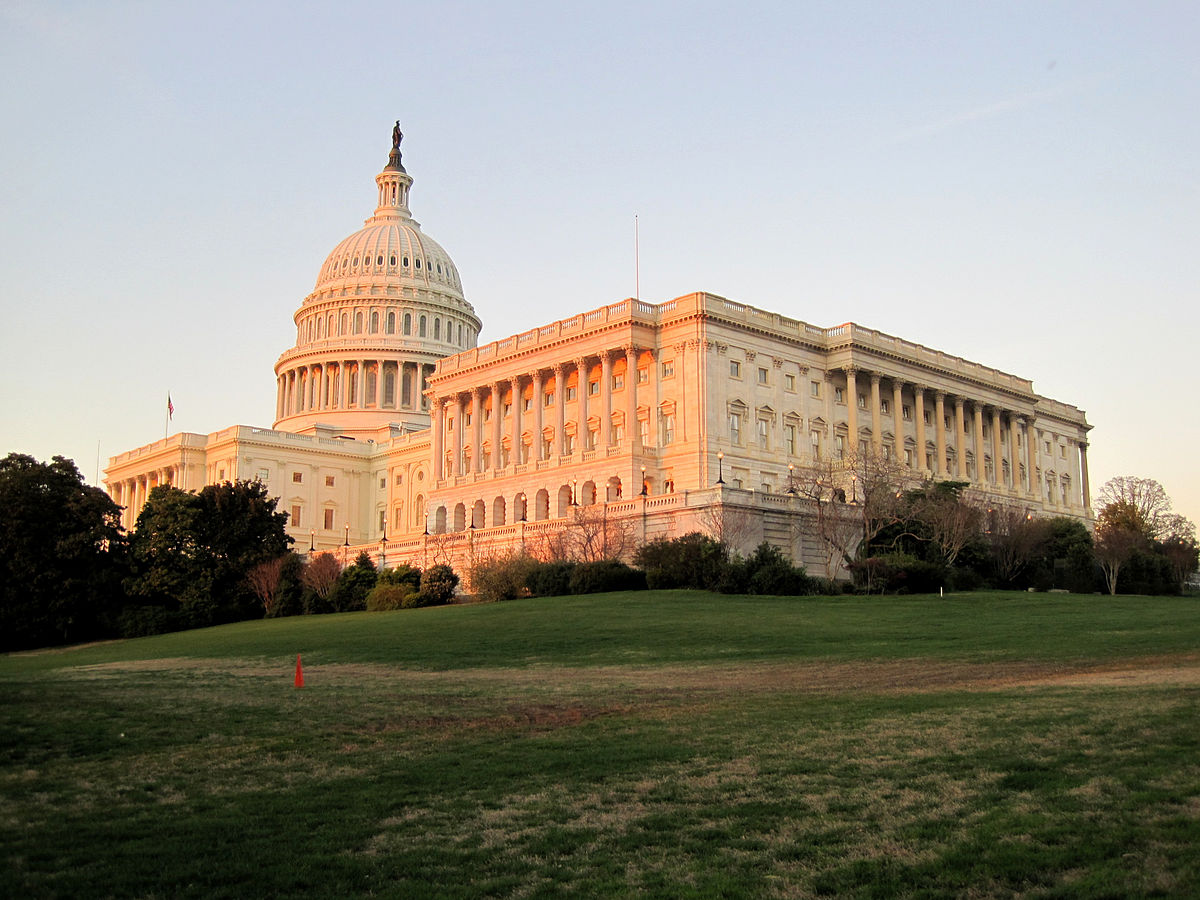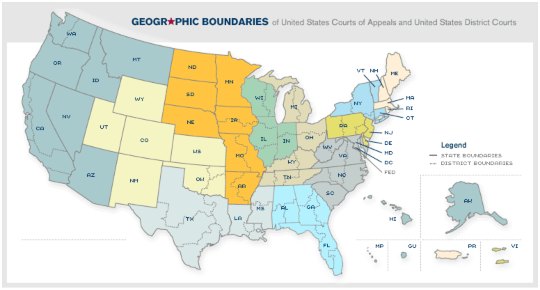What Should be Done About the PACER Problem?
This is the third in a series of posts about PACER:
- What is the "PACER Problem"
- Why Should Congress Care About PACER?
- What Should be Done About the PACER Problem?
Let's outline what you should do, what Congress should do, and what the courts should do:

By James Montgomery Flagg - Public Domain via Wikimedia Commons
What you should do about the PACER Problem
As we mentioned in our first post, Carl Malamud of Public.Resource.Org has written a memorandum detailing a three-pronged approach that average individuals can take to address the PACER Problem: Litigation, Supplication, and Agitation. Let's consider each.
Litigation
It's probably not fruitful if everyone runs out and sues the courts over PACER. Carl's memorandum sketches many of the challenges that such cases would face. There are people thinking about this carefully, however, and so if you believe you are particularly likely to have standing, or have other resources to contribute to such an effort, feel free to get in touch with us and we can direct you to the folks having these conversations.
Supplication
Carl's memorandum also explains that Public.Resource.Org is asking for a fee exemption from the courts, focused on receiving all of the documents from one district court and one appellate-level Circuit court. The courts have the ability to grant such a waiver, and as discussed in our second post , Congress wants the courts to move towards making these documents free. This request is already in the works, so while individuals could be supportive of this request, or pursue their own fee exemptions where they believe they have grounds to receive one, most people will find something in the next category more useful to pursue.
Agitation
There are several polite ways you could raise the profile of this issue. It appears to us that many of the decision-makers are not even aware that there is a problem or that the problem is as dire as it is, so this is not a time to resort to name-calling or flame wars. Instead, consider some of these options for PACER activism:
Postcards
You can send a postcard to the chief judge in your local federal district court and your regional circuit court. Send a simple message, something like:
Hi. I believe that public access to electronic court records is important, but that the current PACER system is not serving the public well. I'm writing to ask you to support the exploration of ways to reduce or eliminate many of the fees PACER charges. I also think fee exemptions should be easier to obtain for a broader group of individuals. I'd encourage you to read the blog posts by Free Law Project about this at http://bit.ly/pacer-1 and to reach out to them if you would be willing to work with them on improving public access. Thanks!
Click on this map to use a PACER feature that actually works fairly well if you're not sure which is your local federal court.
Write to your members of Congress.
Is one of your Senators on the Senate Judiciary Committee ? Is your representative on the House Judiciary Committee ? or is one of your Senators on the Homeland Security and Governmental Affairs Committee ? This was the Committee that wrote that report about the E-Government Act of 2002 that said Congress wanted the Judicial Conference to move to "a fee structure in which this information is freely available to the greatest extent possible." Write your members of Congress, whoever they are, and say something like:
Hello. I believe that public access to electronic court records is important, but that the current PACER system is not serving the public well. When Congress passed the E-Government Act of 2002 an accompanying Senate report stated that Congress wanted the Judicial Conference to move to "a fee structure in which this information is freely available to the greatest extent possible." However, PACER fees have only increased since that time and there appear to be no meaningful efforts to make these public records freely available. I would urge you to call for public hearings on PACER to learn why no improvement has been made on this in the last 13 years. I would also recommend you read the blog posts about this by Free Law Project at http://bit.ly/pacer-2 that suggest other steps Congress should take. Thank you for your attention to this important matter.
You can find contact information for your members of congress by searching on OpenCongress.org.
Crowd Source the Documents
Another option is to join our crowd-based effort to download PACER documents using RECAP.
Carl's memorandum also suggested a way to pursue direct action to free some PACER documents. PACER waives any fees that are under $15/quarter. So, Carl proposed that on May 1st a lot of people download $15/worth of documents and try to set a record day for PACER usage. Using your $15/quarter in "free" downloads is easy: You need to get a PACER account (credit card required), then you need to get the RECAP extension for either Firefox or Chrome. Do this now in the first quarter so you can make sure your setup is working. That way you know you'll be ready on May Day. We've written up detailed instructions for participating. We've also set up a recap-reminder mailing list that will send you a reminder when each quarter is coming to a close, so you never forget to use your $15 credit to put more public documents into a free public archive.
Do whatever you do best!
Maybe you're great at making videos or art or writing opinion pieces for your local newspaper. That's awesome. Do those things. This is a people's protest.
Make May 1 "Law Day" a National Day of PACER Protest
To give all these individual efforts greater collective impact, Carl has proposed that the people take back May 1st "Law Day" by making it a National Day of PACER Protest. So, whether you're mailing a letter, delivering a postcard in person, or downloading $15 worth of PACER documents with RECAP, focus your activity on May 1st.
 By Francisco Anzola - CC-BY 2.0 via Wikimedia Commons
By Francisco Anzola - CC-BY 2.0 via Wikimedia Commons
What Congress should do about the PACER Problem
Congress should amend the E-Government Act of 2002 to forbid the Judicial Council from charging PACER fees.
While this is something of a "nuclear" option, it is actually the best option because almost nothing else would solve every aspect of the PACER Problem we wrote about in part one of this series . The elimination of fees obviously resolves the unreasonably high cost of public access, but it would also solve the user-interface, document-level search, and accountability problems that make up the PACER Problem. These problems would be solved as companies competed to innovate with the PACER data. Additionally, when multiple third parties have their own copies of the public record, there can finally be accountability since the Judicial Council would be unable to arbitrarily take thousands of documents offline .
A fundamental part of such a change in the law should include a commitment to provide the courts with the funding they need directly. It is not right for the courts to use a PACER surplus to fund unrelated needs. This should stop and Congress should open up the books and figure out the appropriate level of direct funding.
Congress should hold hearings on public access to electronic court records.
Before any change to the law, Congress generally holds hearings, and hearings on public access to electronic court records are long overdue. The courts put out reports that make hard-to-believe claims about user satisfaction rates and present carefully-selected statistics to suggest that many members of the public are getting free access, but a hearing that actually included diverse perspectives on these topics should be eye-opening for Congress. Invite the legal technology startups, venture capitalists, and non-profits operating in this space.
Congress would learn that a system that is good enough for electronic filing is disastrous as a fee-based public access system and that this particular disaster is holding back an enormous amount of innovation, economic growth, and public good.
Congress should require greater financial transparency around PACER.
At a minimum, Congress and the public deserve more information in order to evaluate PACER and its operation. Congress should insist on detailed financial reports and outside audits that would show annual PACER revenues, annual expenses actually tied to public-access-related operations, and amounts spent annually by federal government entities using PACER. Fee policies could be better evaluated if such reports also showed separately the revenue generated from searches, docket reports, and document downloads. Congress already has the authority to receive such information and simply needs to ask.

By Phil Roeder. CC-BY 2.0 via Wikimedia Commons.
What the Courts should do about the PACER Problem
The Courts should eliminate numerous PACER fees immediately in order to eliminate the PACER surplus.
As described in our second post, best evidence suggests that PACER fees generate far more revenue than it costs to operate PACER. This has created a surplus whose existence violates the E-Government Act of 2002 and thwarts clear congressional intent that the Judicial Council move towards making these documents free.
These fees could be dropped to eliminate the surplus: searches should be free, docket reports should be free, complaints should be free, and not just opinions, but all orders should be free. This would leave in place charges for motions, briefs, declarations, transcripts, exhibits, and numerous other documents found on court dockets. But removing the fees for these other types of documents would enable much greater public insight into the workings of our federal judicial system. It would be a huge step towards allowing the public and the press to "know what it doesn't know." Without a docket, one may not even know of a case, and without the complaint, one often does not know the case's subject matter sufficiently to know whether it is of interest, and if one could search without fear of charge, then these items could be found. Finally, as we've stated many times, the decrees of the courts, through orders and opinions, are the law, and we have the right to inspect the law that binds us.
We also believe all documents in cases that have been closed for at least a year could be made free without a financial impact, but again, without better reporting from the Judiciary or Congressional oversight, we lack detailed statistics on PACER usage, making it impossible to know for sure what financial impact this would have. Comments from the Administrative Office of the Courts during the PACERocalypse certainly suggest that documents in these older closed cases are not frequently retrieved and so should not significantly reduce revenue.
The Courts should grant Public.Resource.Org's Fee Waiver Request.
Public.Resource.Org proposes an extremely worthwhile experiment in free bulk access to PACER. In addition to the value that would be had as a result of the privacy audit proposed, I believe the chief value of such an experiment will come from things we don't now expect. That is, legal technologists will build remarkable things on top of this data that we currently don't even know we want or would enjoy. Their prototypes built on the data from a few courts will help demonstrate what we're missing out on by not opening up all the documents.
The Courts should publish reports that provide for greater transparency.
The same reports that I suggest Congress should ask for, the Courts should simply produce on their own, without having to be asked. The courts should be leaders in operational transparency, instead of engaging in what looks like obfuscation to hide revenues that should have never been collected.
Finally
In the end, solving the "PACER Problem" will require help from the public, Congress, and the courts. The system has been in place for many years and allows for electronic filing fairly well, but when it takes on its alter ego of a pay-per-page public access system it becomes a devastating impediment to innovation in the legal technology space and thwarts the ability of the press and the public to ensure the proper functioning of our democracy. Start preparing to do your part to address the PACER Problem before, during, and after May 1st. We intend to keep at it until we tear down that pay wall.




